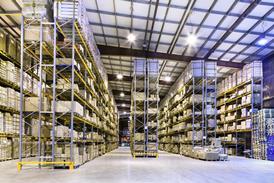As we start to envisage the end of the Covid crisis, our high streets and surrounding neighbourhoods will play a huge role in how we look closer to home for all those services or occupations we were previously travelling for.

High streets bind communities together. The 5,000 of them in the UK (600 in London alone) are the heartbeat of our country.
Chancellor Rishi Sunak has announced measures to support retailers and urged shoppers to support high streets. With £9bn of funding for more than 101 town deals promised, the High Streets Task Force, launched last June, has also been a huge boon for our struggling retail sector.
However, this has not stopped Covid from ravaging the UK’s economic health and if that health is to improve, then planners, politicians and property owners must shift their focus from a purely retail solution when dealing with empty shops and distressed retail assets.
We need to think about the built environment in more creative and innovative ways and start mixing things up.
We are starting to look at some more complicated marriages of uses, with the GLA pushing for more ‘co-location’-type projects to retain industrial uses in Greater London as well as delivering housing: more jobs and more homes in the same location.

By consolidating traditional retail by integrating it with more resilient commercial real estate that is oriented around pop-ups, ‘meanwhile’ spaces and logistics, we can maybe start to reverse the fortunes of our high streets.
We want to ensure that more commercial space is refurbished to provide flexible solutions to agile and entrepreneurial local businesses and to support a blend of modern retail and hospitality businesses.
We should also look at using residential to breathe new life into our towns and cities. Why spend so much time trying to entice people onto our high streets when they could already be living there?
However, simply shoehorning homes into redundant commercial spaces is not the answer. These schemes require sensitive planning and must address the environmental constraints that arise from living on a high street.
We are working on some interesting projects that represent this principle. Assael recently won Meridian Water’s ‘Placemaking with Purpose’ competition with a proposal to create a community that meets Enfield Council’s sustainability requirements and provides a vision for a post-Covid high street that incorporates housing, retail, culture, education and workspace.
Collaboration between architects, developers, the local authorities’ varied teams, operators, local businesses and local people can bring forward flexible and sensitive mixed-use schemes to benefit the entire community.
There is no simple fix to revitalising our high streets. It will require time, patience and negotiation. But these are simple, achievable things – small steps on the road to a new future.
Félicie Krikler is director at Assael Architecture





























No comments yet